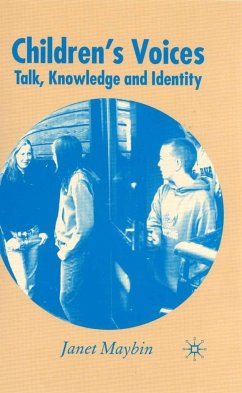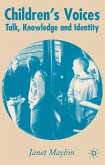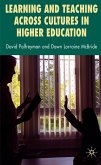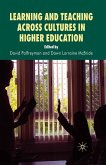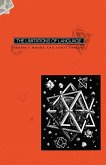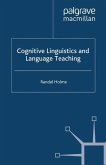Janet Maybin investigates how 10-12 year-olds use talk and literacy to construct knowledge about their social worlds and themselves. She shows how children use collaborative verbal strategies, stories of personal experience and the reworked voices of others to investigate the moral order and forge their own identities.
Hinweis: Dieser Artikel kann nur an eine deutsche Lieferadresse ausgeliefert werden.
Hinweis: Dieser Artikel kann nur an eine deutsche Lieferadresse ausgeliefert werden.
'It is not often that you are gripped by an academic book. I read Janet Maybin's book through in almost one reading, gripped by the range of insights she offers into children's off-record talk, her judicious use of social and cultural theory, her many new insights into the significance of styling and voicing emotion and evaluation in everyday dialogue, her careful building of new ways of talking about and describing talk among children. This is a highly significant contribution to language in education, to our understandings of language use and multiple but hitherto unnoticed aspects of the ways knowledge is constructed. It is a book that is likely to refocus educational research for many years to come, shifting the research landscape to the importance of talk outside the classroom for our understanding of 'official' talk inside the classroom. It is a book that is written in a lively and engaging style. In fact, it is a book that is not just gripping; it is genuinely groundbreaking.' - Ron Carter, Professor of Modern English Language, Nottingham University, UK
'Most impressive are the ways in which the work brings to life hybridity, emotion, and moral evaluation...Children's Voices serves as an important exemplar of the artful ways young people fashion lives and learning through dialogue, and of the compelling need for ethnographers, educators and linguists to find equally artful ways to render their accounts of language and learning.' - Deborah Hicks, Professorof Education and Women's Studies at Duke University, North Carolina, USA
'This book will be a valuable resource for educational researchers as well as teachers seeking to understand the importance of informal talk and the complexities of different forms of children's talk across official and unofficial school spaces and throughout the school day.' - Dennis Kwek, Language and Education, 22:2, 2008
'Most impressive are the ways in which the work brings to life hybridity, emotion, and moral evaluation...Children's Voices serves as an important exemplar of the artful ways young people fashion lives and learning through dialogue, and of the compelling need for ethnographers, educators and linguists to find equally artful ways to render their accounts of language and learning.' - Deborah Hicks, Professorof Education and Women's Studies at Duke University, North Carolina, USA
'This book will be a valuable resource for educational researchers as well as teachers seeking to understand the importance of informal talk and the complexities of different forms of children's talk across official and unofficial school spaces and throughout the school day.' - Dennis Kwek, Language and Education, 22:2, 2008

